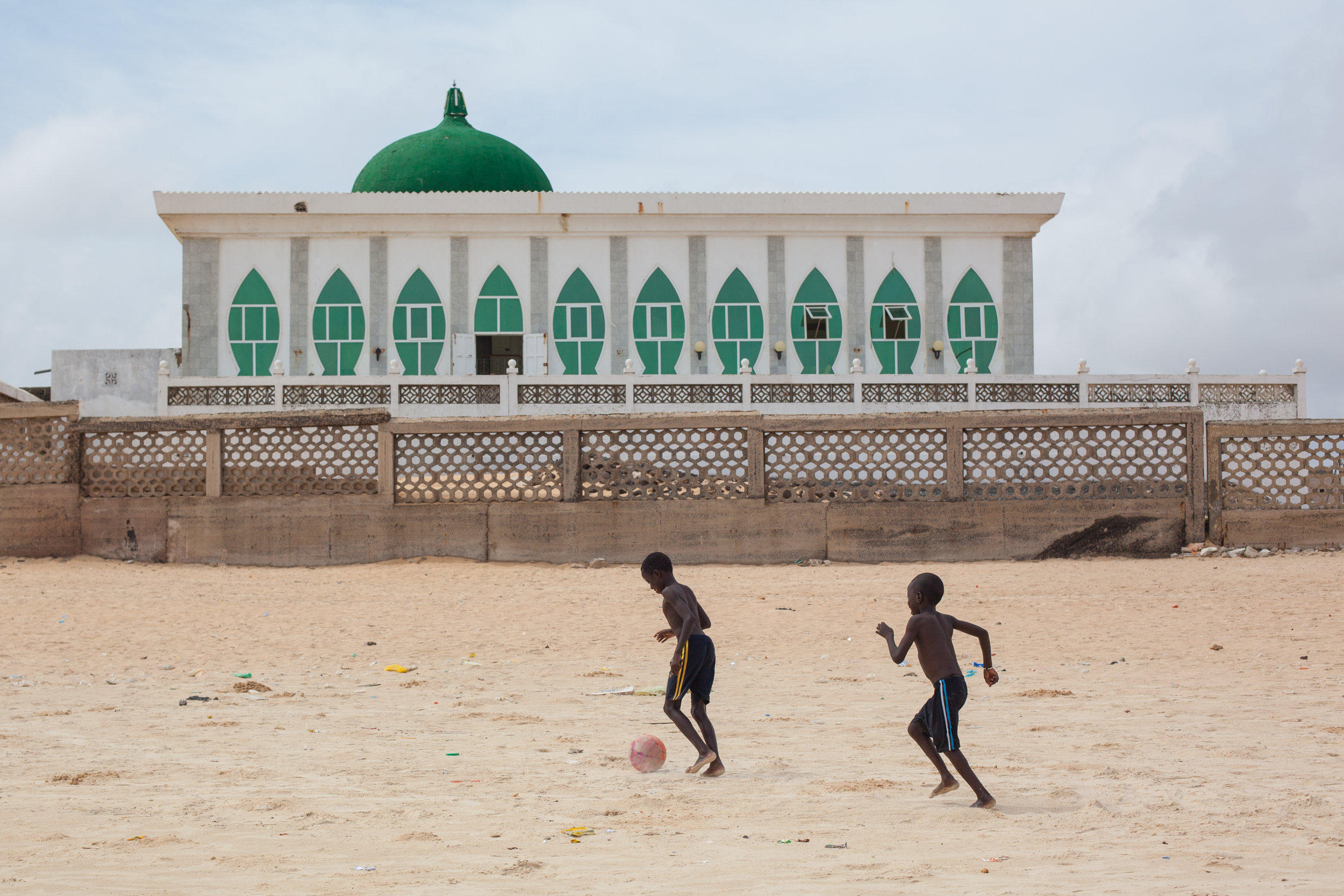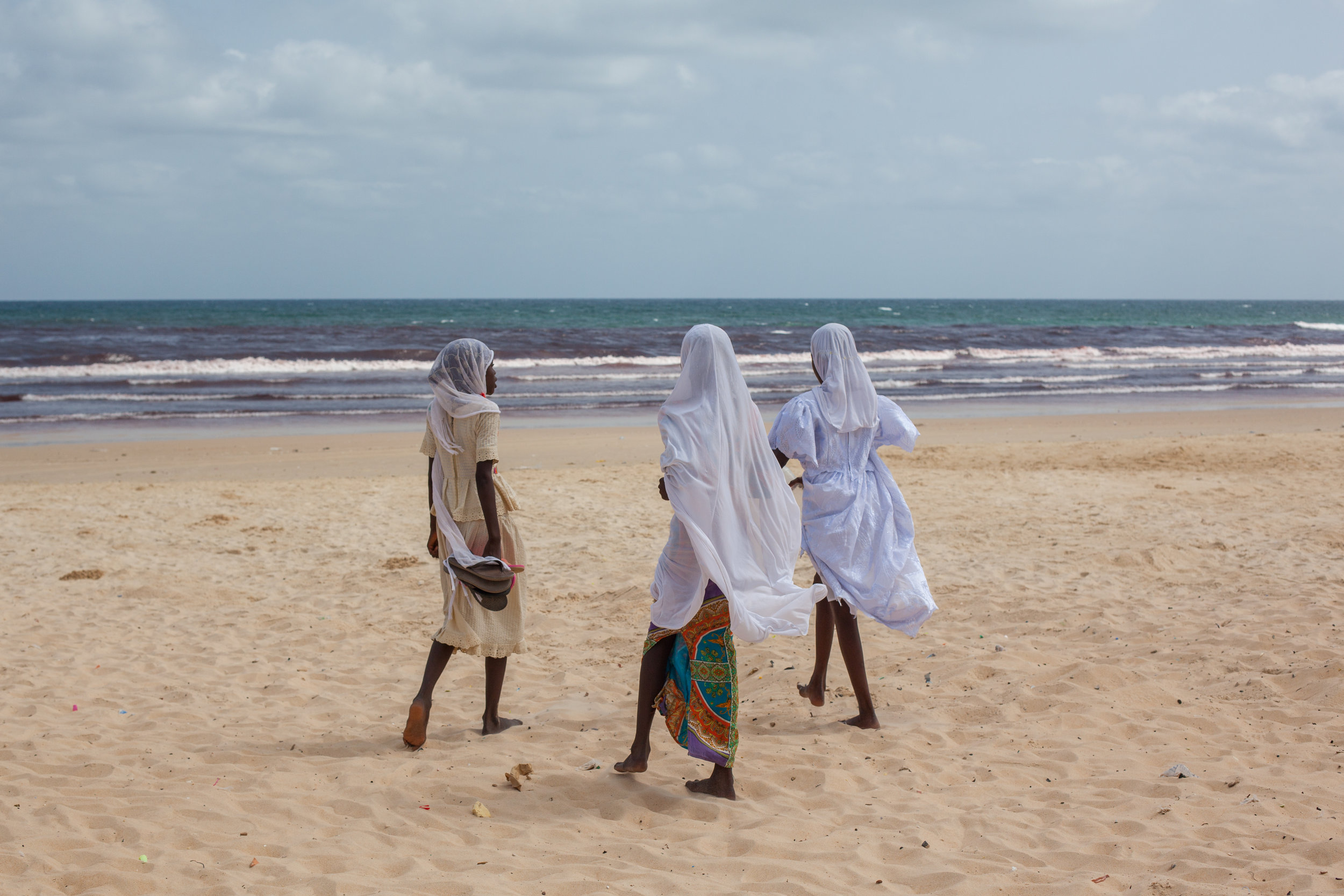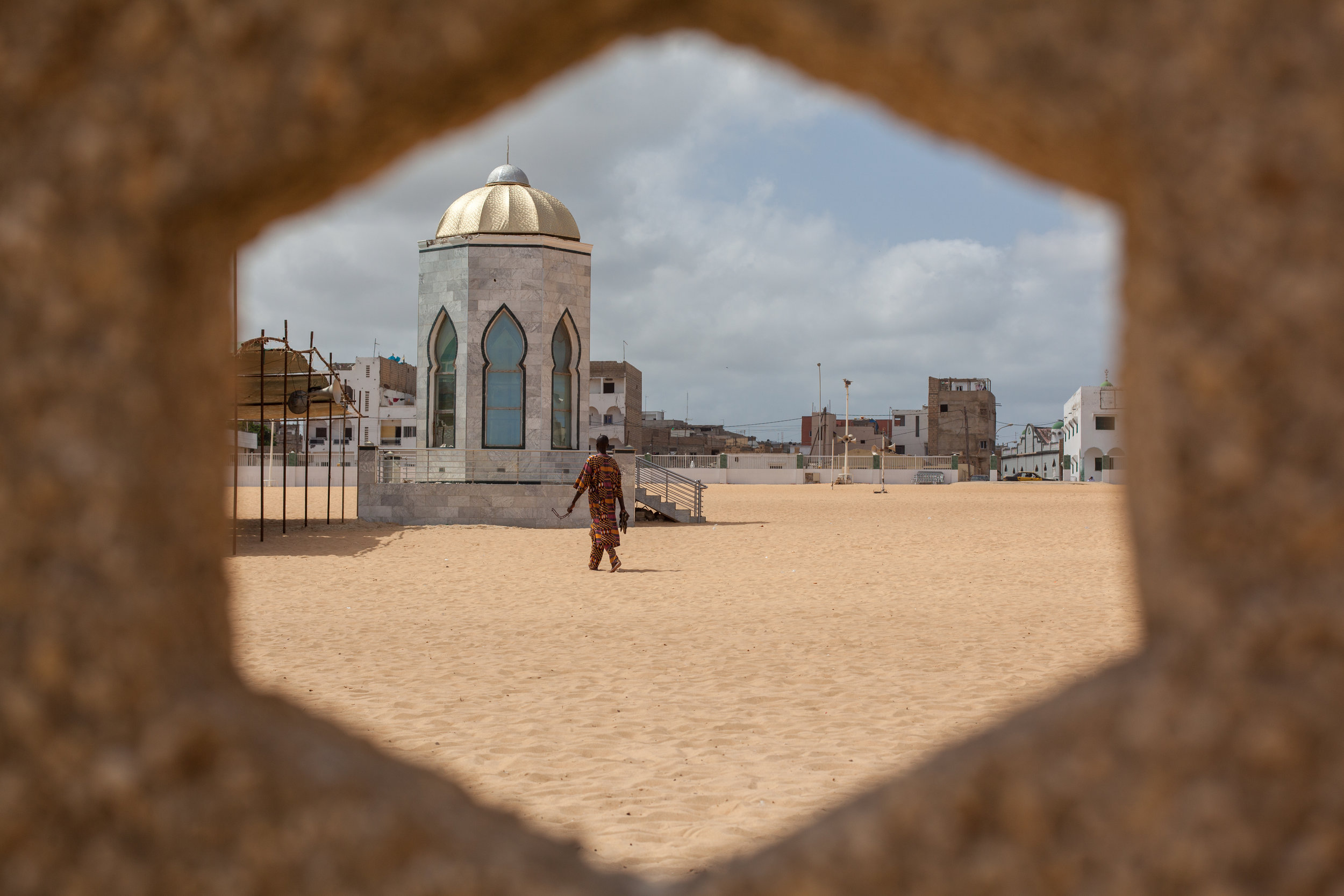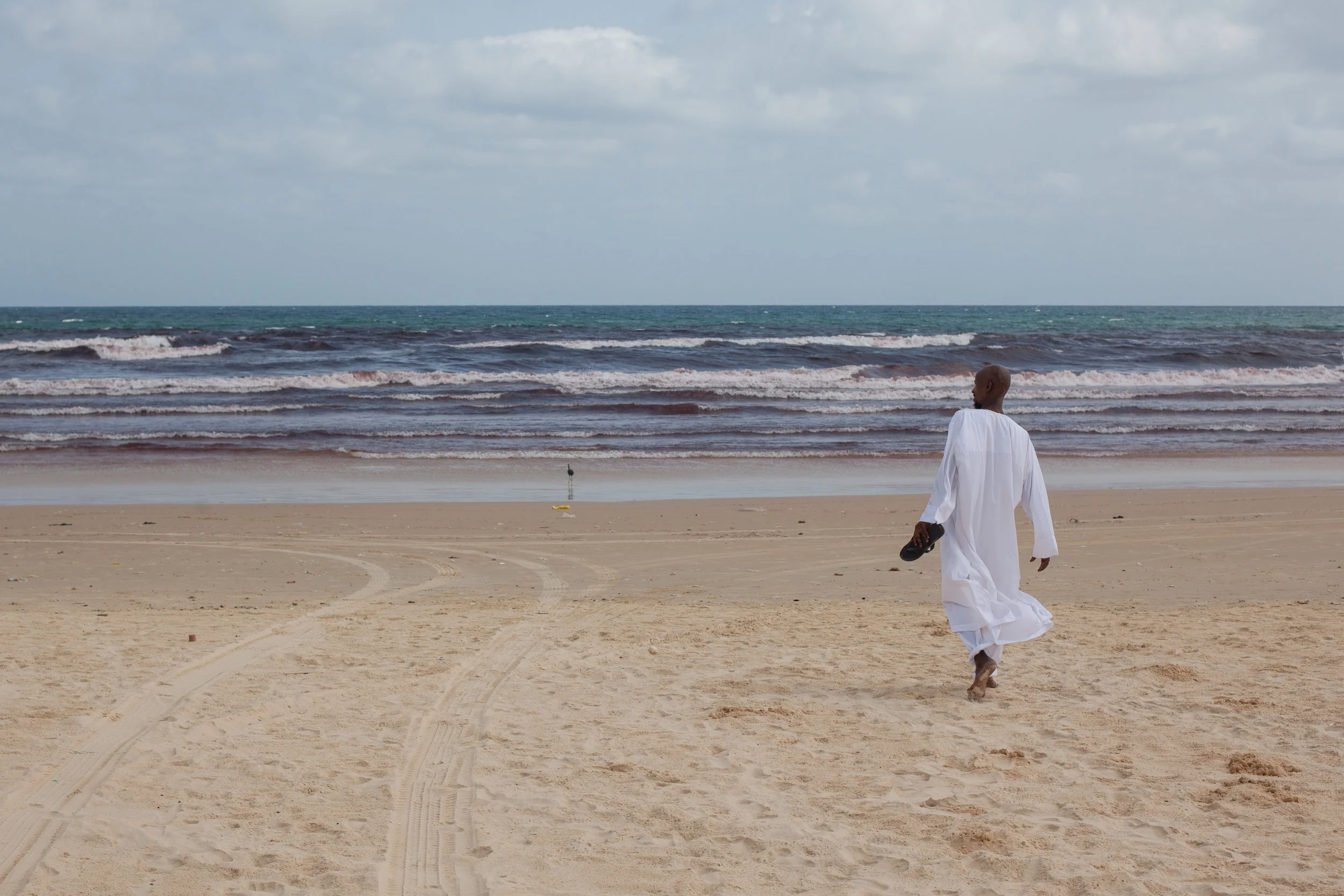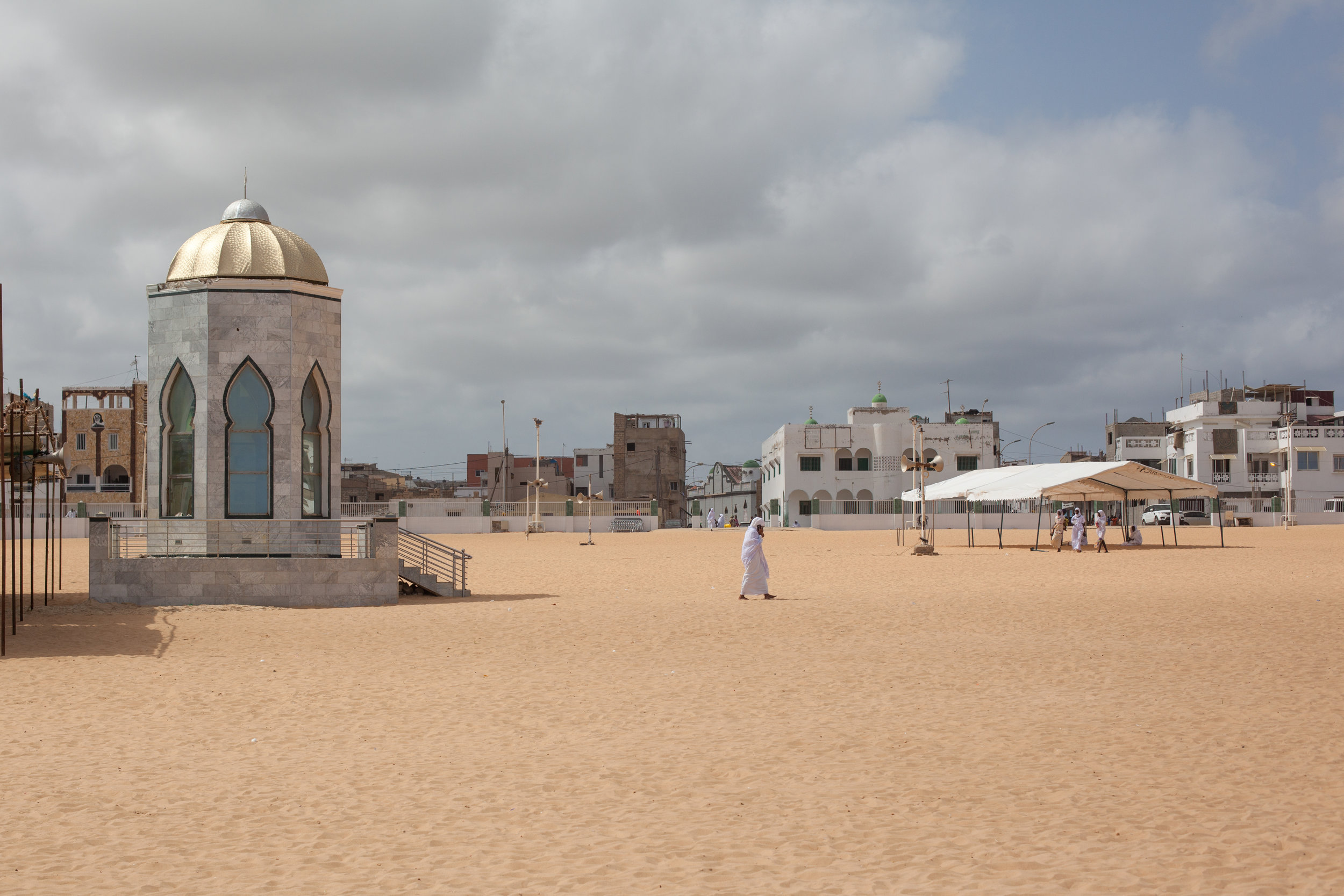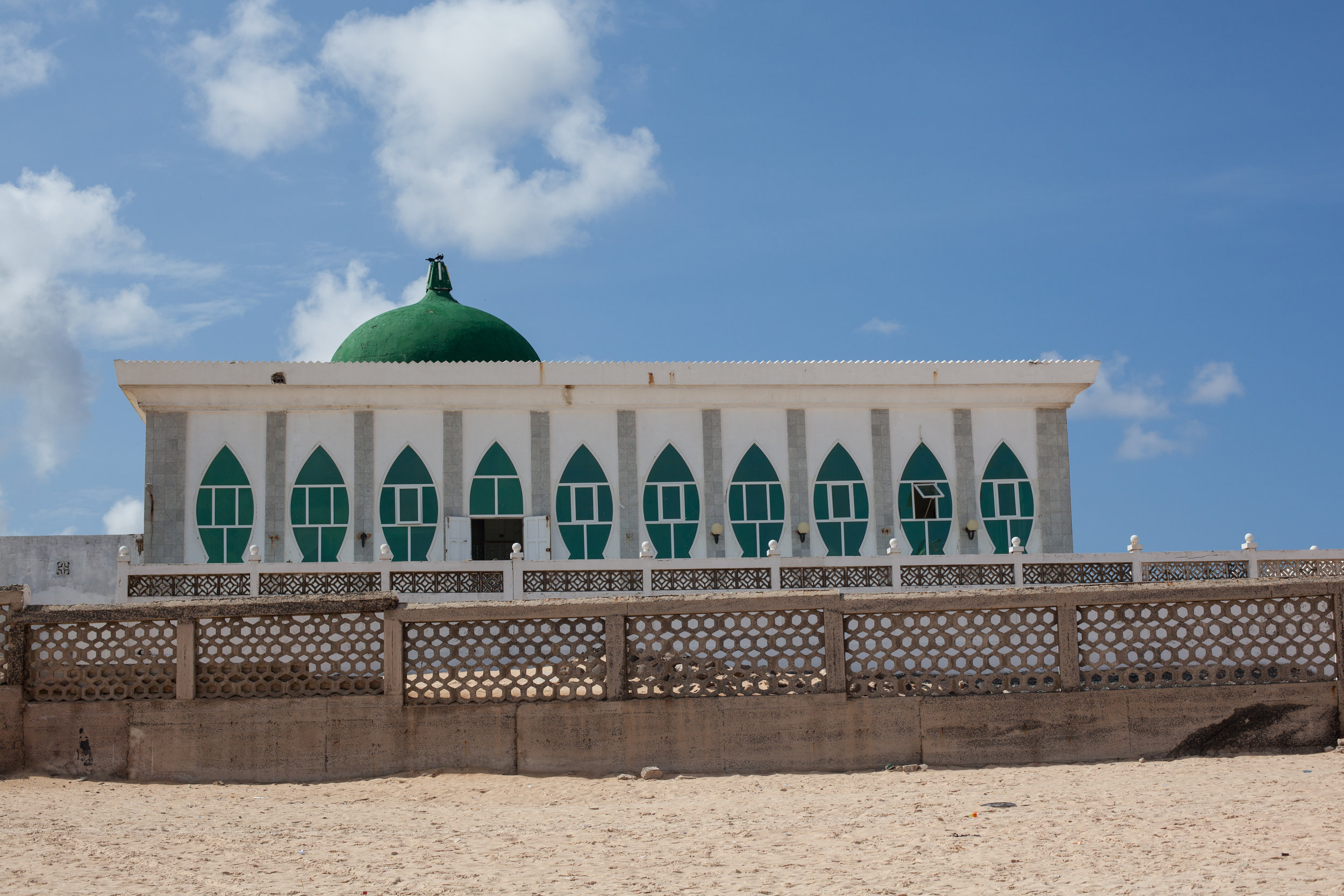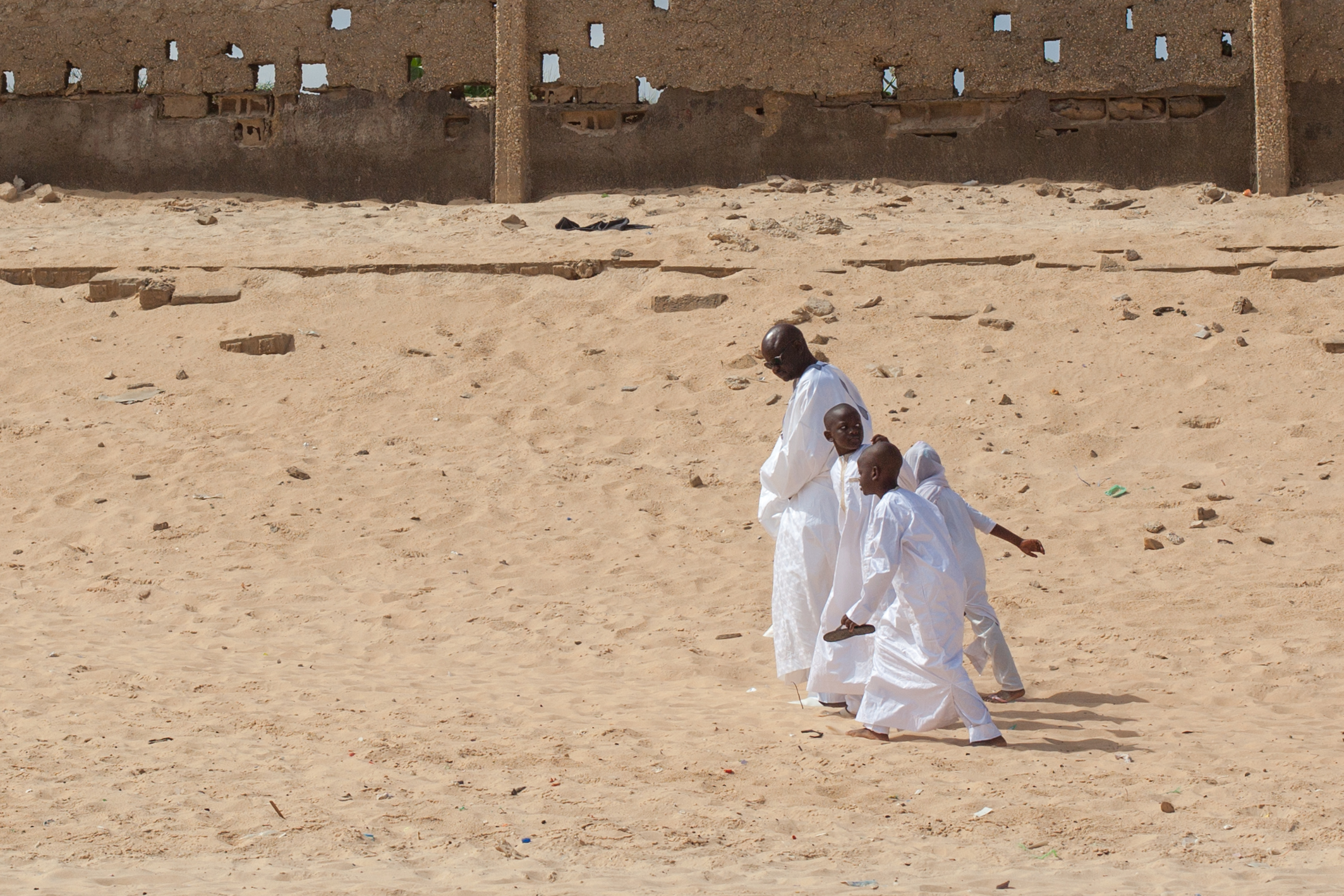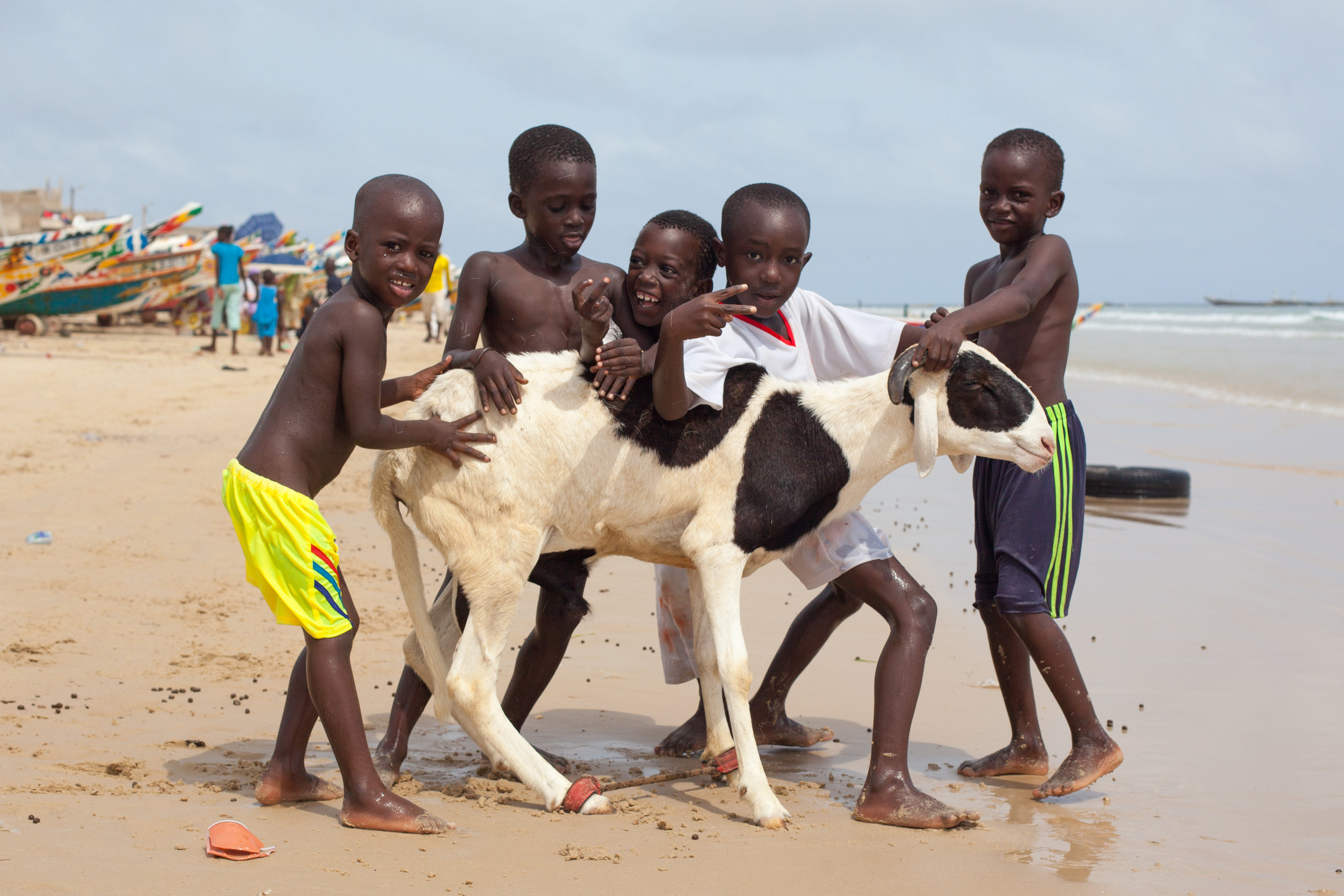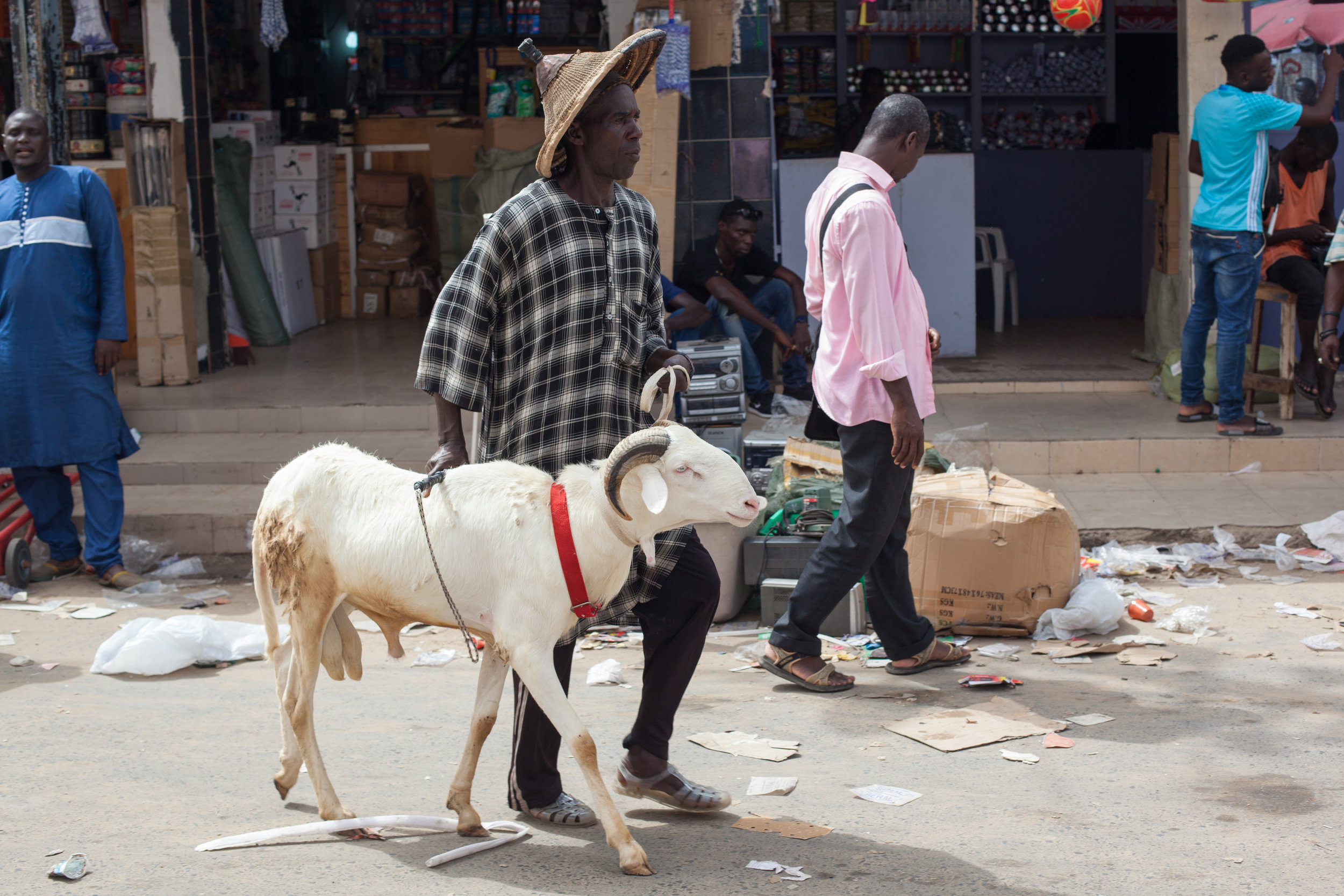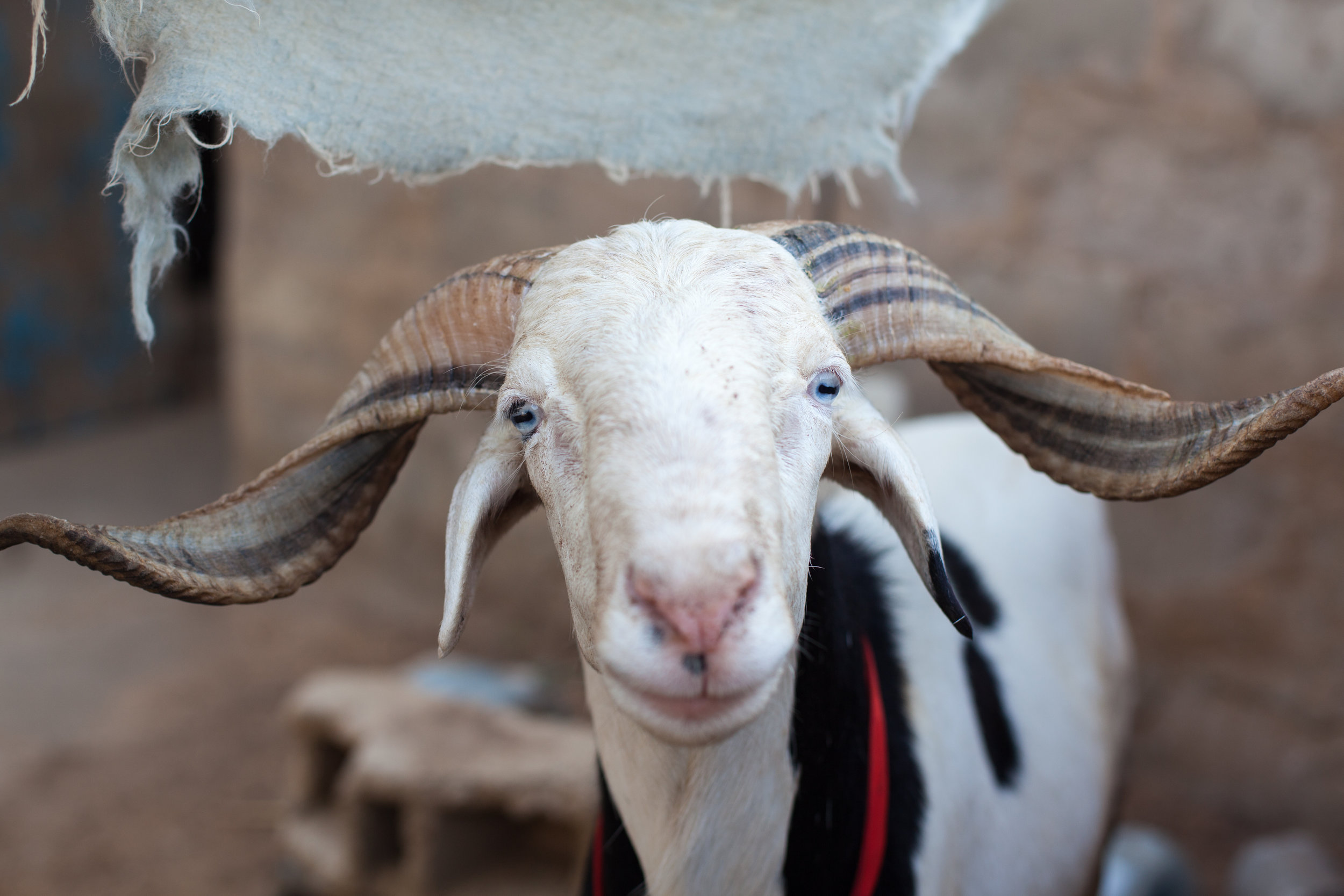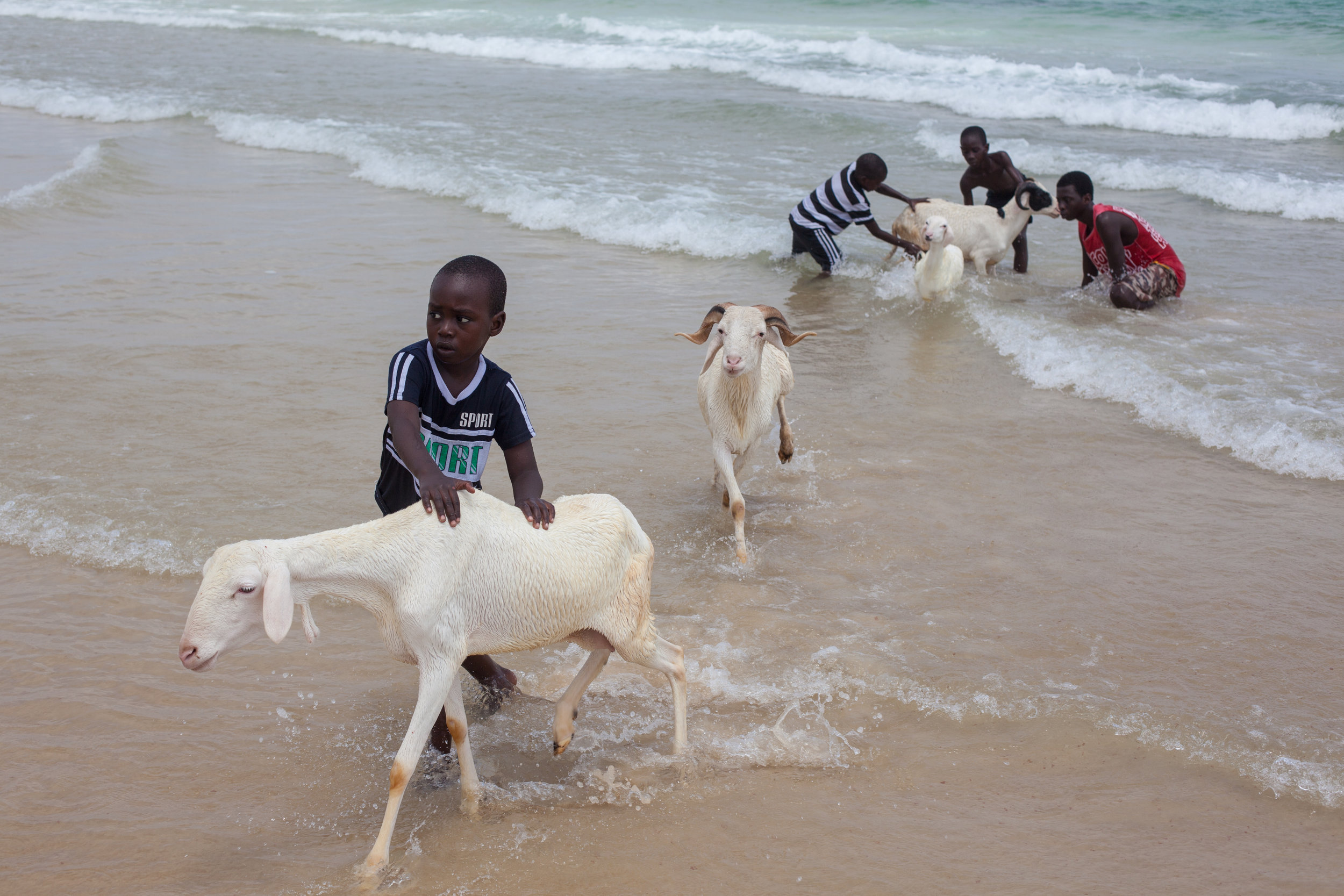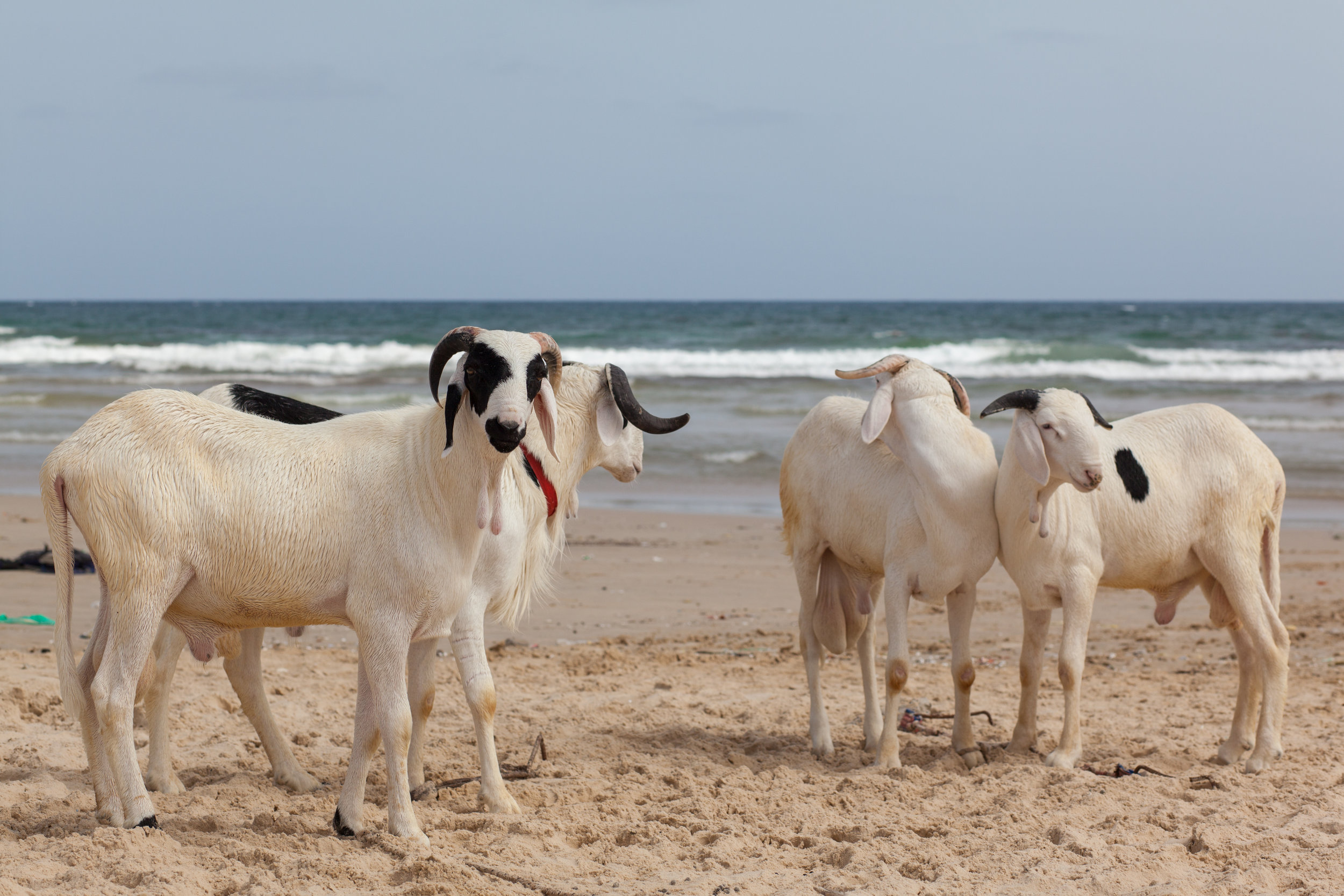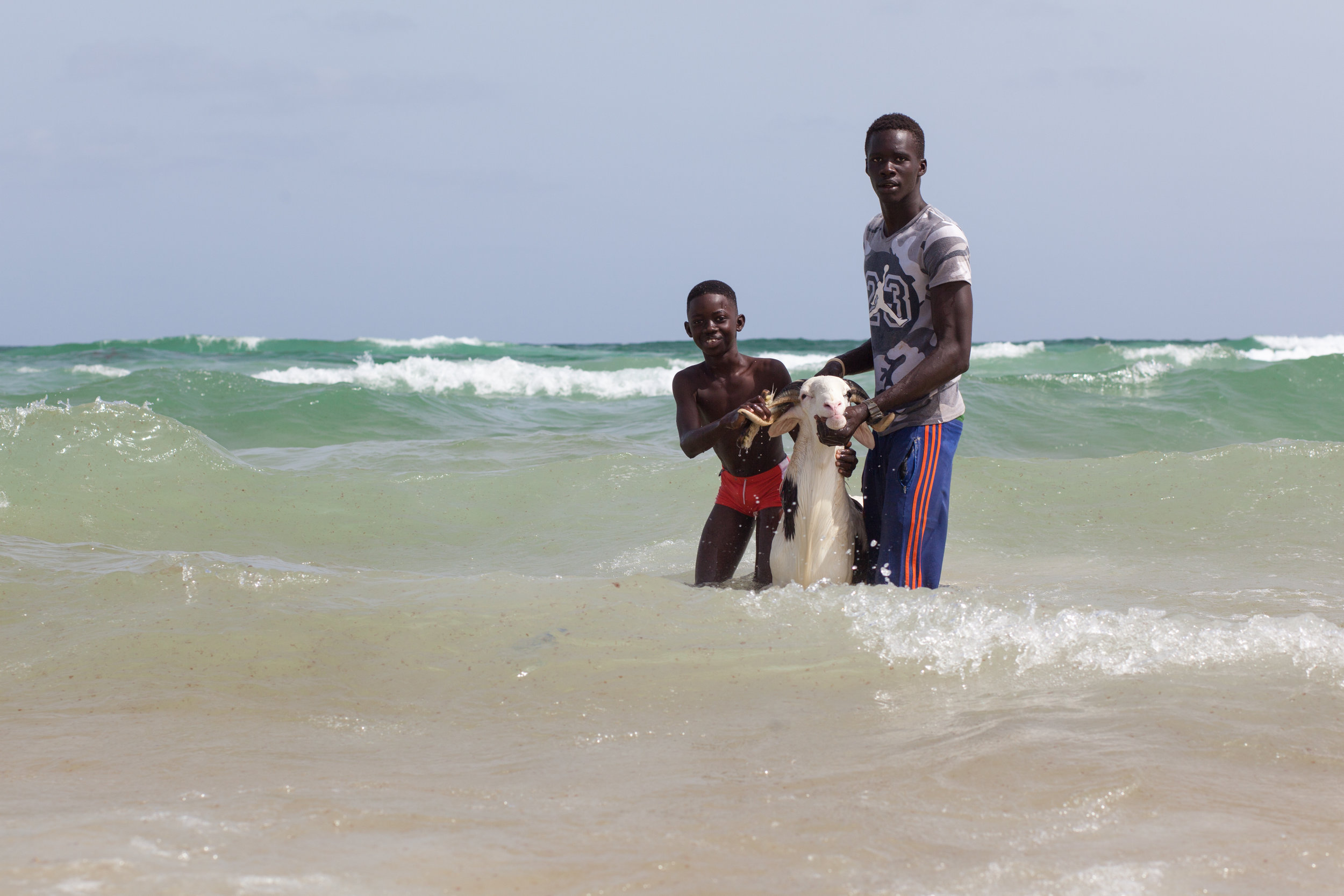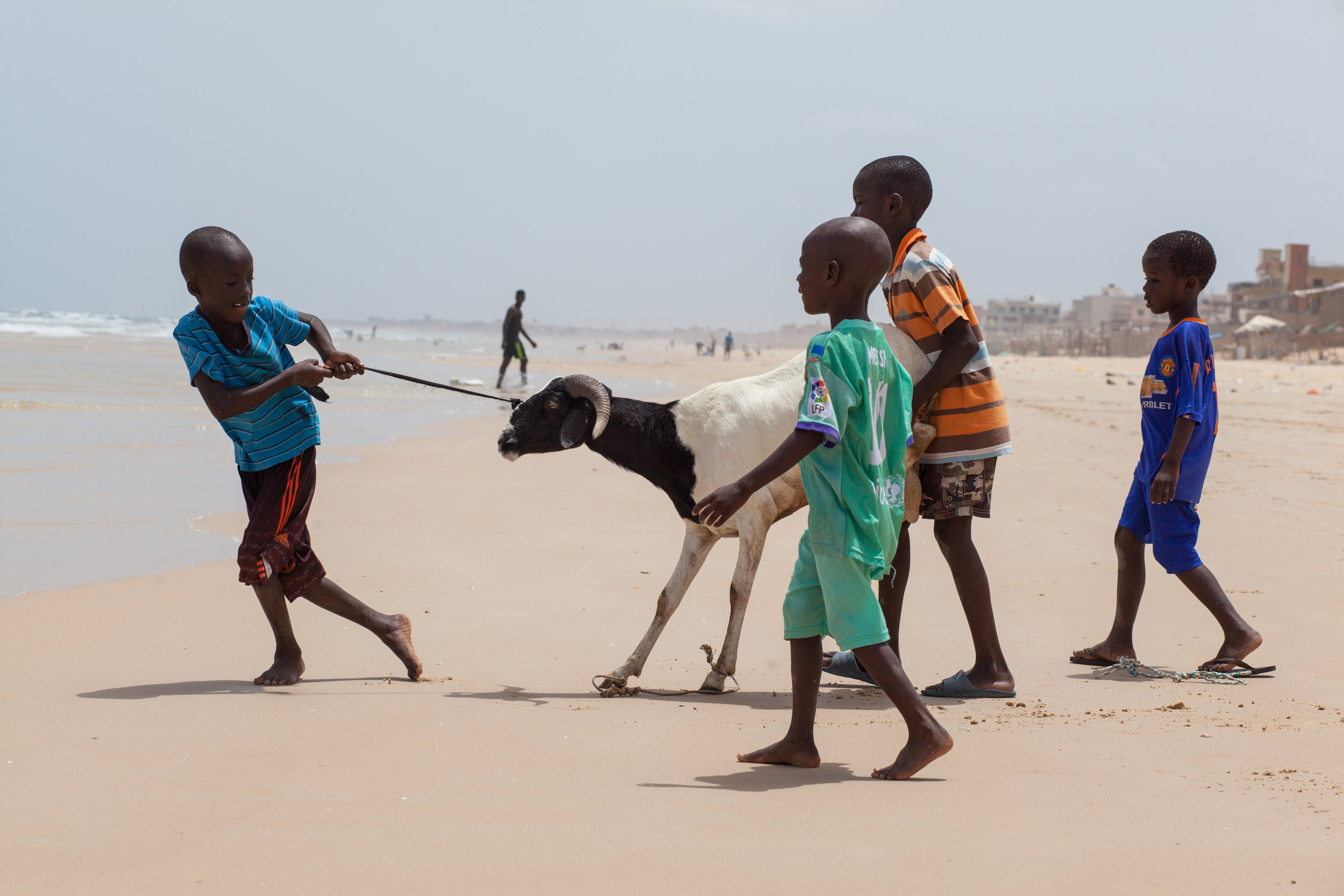This time last year I spent a couple of months in Dakar, the capital of Senegal. For much of that time I stayed in the beach town of Yoff. At the west end of the beach is the Grande Mosquée de Yoff, a beautiful large white mosque overlooking the ocean. Click through the slideshow below to view some of the photos I took around Grande Mosquée de Yoff:
The town of Yoff is built along the broad beach at Yoff Bay which faces the Atlantic Ocean, directly north of the centre of Dakar. Here is a previous photography blog I wrote about Yoff Beach and the people that live there. The large mosque is built right on the beach just metres from the ocean.
For much of the week the mosque seemed relatively quiet without much activity, almost ignored by the locals. However on a Sunday morning the mosque is full of locals who attend the weekly service and then often congregate on the beach afterwards. The beach is a fascinating place and great for photography, it is full of life and activity on a daily basis. During the time of the Tabaski Festival you will see children leading animals to the ocean for a wash. At the far end of the beach, past the mosque is the fishing village full of traditional, colourful wooden fishing boats. The surf at Yoff beach is also very consistent and is home to a couple of surfing schools and cheap friendly hostels. During the summer the beach also has some some of the best sunsets I witnessed in Senegal.
More of my travel photography from Senegal can be found on my website, my Instagram, and my Flickr account. If you are interested in purchasing any prints, using an image online or would like further information please send me an email at: geraintrowlandphotography@gmail.com.
